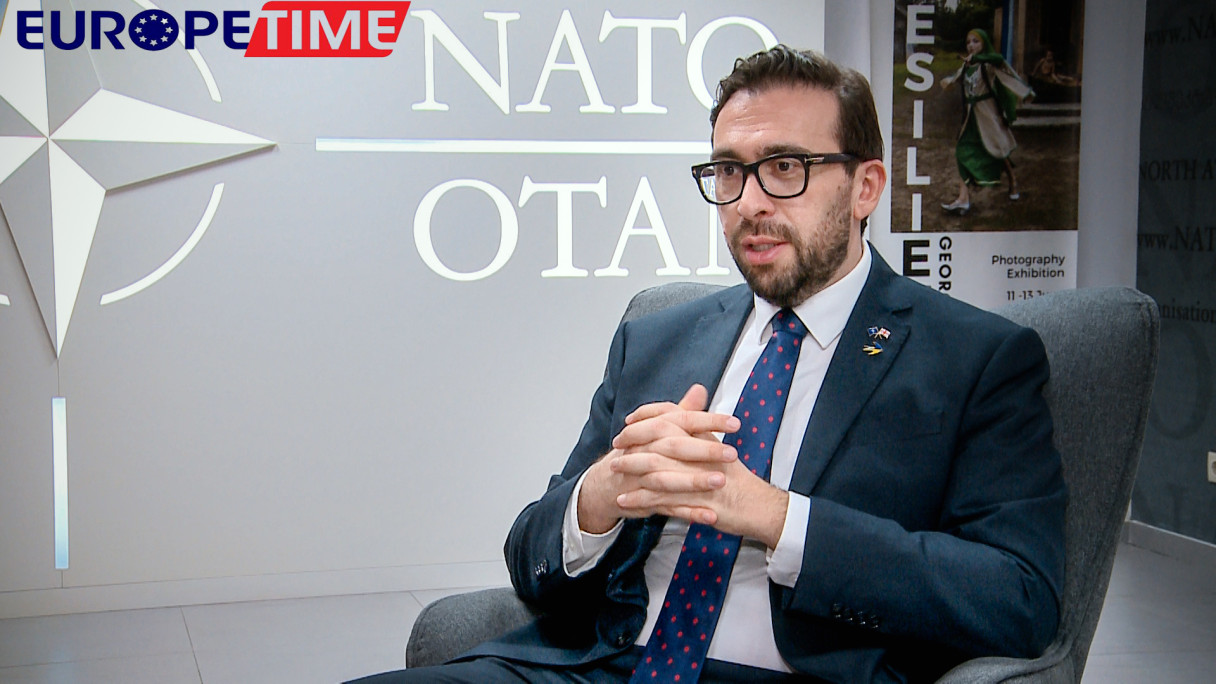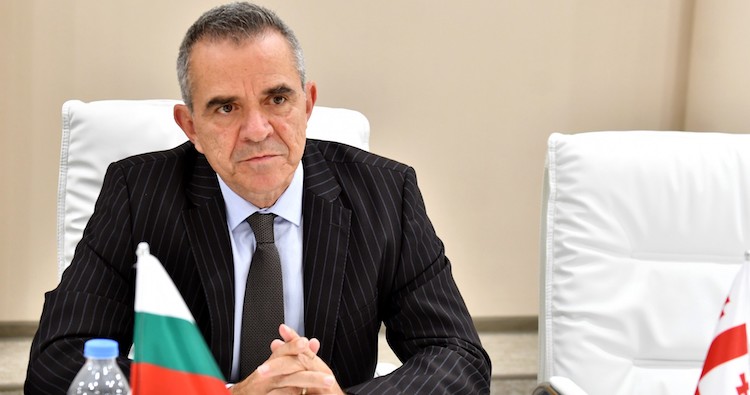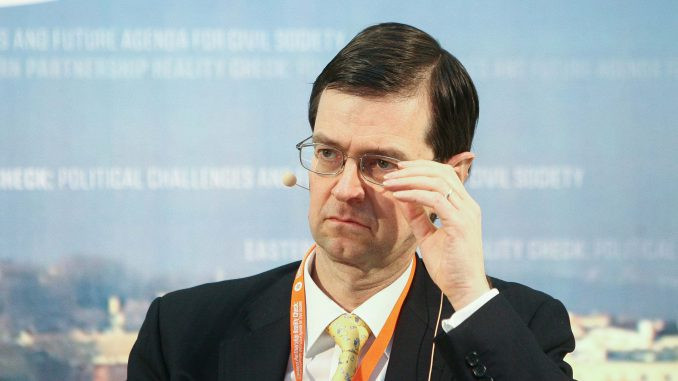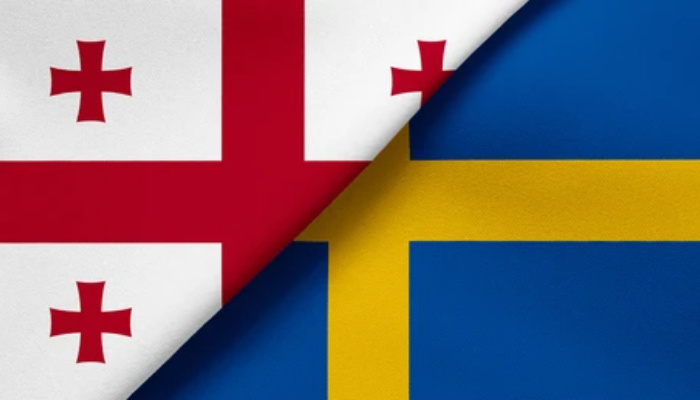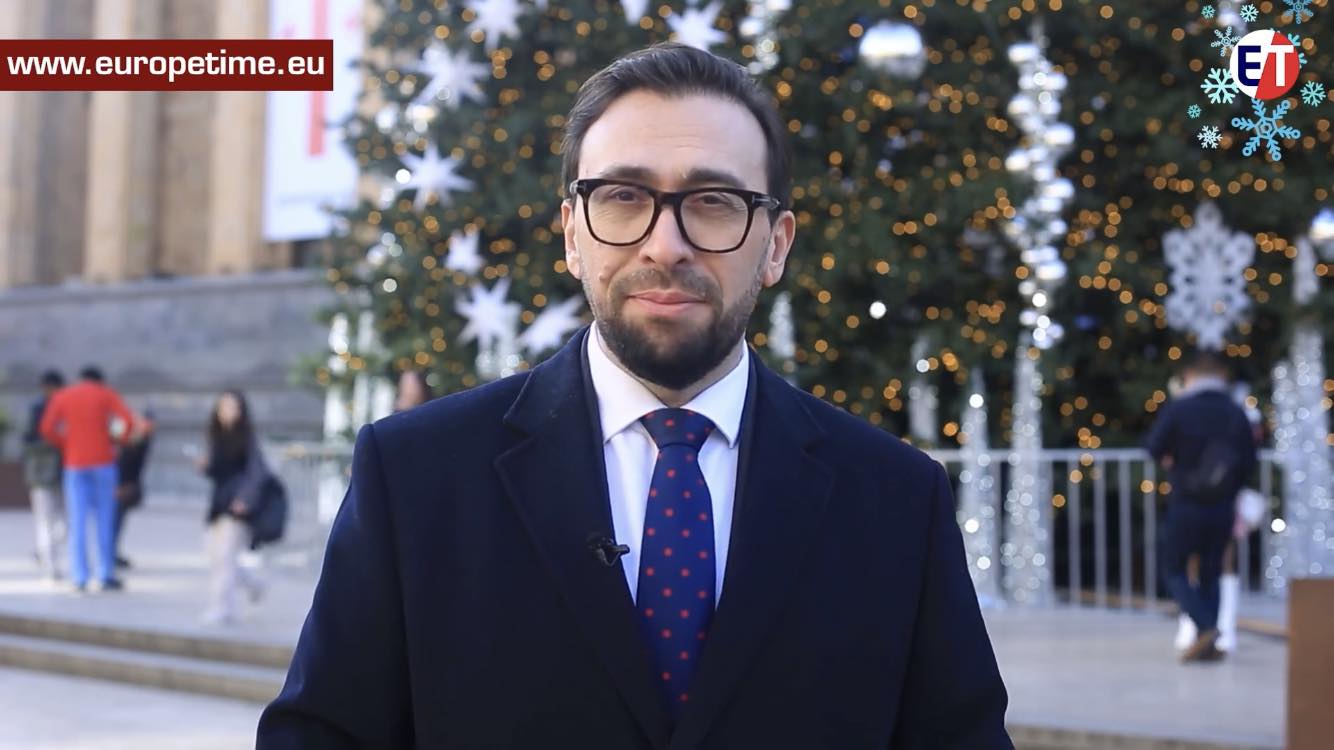EuropeTime provides an exclusive interview with the head of the NATO Liaison Office in Georgia, Alexander Vinnikov.
ET: Considering NATO-Georgia partnership, how do you assess the outcomes Georgia has achieved regarding taking advantage of the support provided to it by the Alliance?
Alexander Vinnikov: Georgia is one of NATO’s closest partners. It aspires to join the Alliance. Over time, a broad range of practical cooperation has developed between NATO and Georgia, which supports Georgia’s reform efforts and its goal of Euro-Atlantic integration.
Georgia has carried out an impressive range of reforms, particularly when it comes to its defense forces and the wider security sector. However, more needs to be done. I would highlight the issue of democratic oversight of the institutions of the security sector.
There’s still more that should be done to align the Georgian system with the principles of NATO member states. Other key reform areas where Allies would like to see progress include judiciary reform, electoral reform, and freedom of the media. Progress in all of these areas would be greatly facilitated by a less polarized political environment. We encourage Georgia to recover the momentum of its reforms, something that has been reduced in the last couple of years.
The European perspective granted to Georgia by the EU represents an historic window of opportunity to take forward ambitious reforms. There is significant overlap between the EU’s 12 recommendations and NATO’s recommendations provided through the ANP process. Allies encourage both the government and the opposition to seize this opportunity and reach across the political divide to advance the country on its constitutionally mandated European and Euro-Atlantic path.
At the Madrid Summit, Allies made decisions to strengthen the resilience of those partners we consider most at risk of further Russian threats and interference in the context of Russia’s unprovoked and brutal invasion of Ukraine.
Georgia is one of these partners. Allied leaders decided to step up their political and practical support to Georgia, and these decisions are already being implemented.
Furthermore, at their most recent meeting in Bucharest (November 29–30), NATO Foreign Ministers reaffirmed the Alliance’s support for Georgia in very strong terms. The Statement by Foreign Ministers underscores the Alliance’s firm commitment to its "Open Door" policy and reaffirms the decisions the Allies took at the 2008 Bucharest Summit and all subsequent decisions with respect to Georgia and Ukraine. Georgia’s E-A aspirations are also reflected in the new Strategic Concept (NATO’s second most important document after the Washington Treaty) adopted at the Madrid Summit.
ET: The war against Ukraine has led to increasing of attention towards the Black Sea security. In your view, how important is it to have a fresh coordinated, common strategy towards the Black Sea region and is US discussing this issue with NATO?
Alexander Vinnikov: Since 2014, we have implemented the largest reinforcement of our collective defense in a generation, enhancing our ability to defend allies on land, at sea, in the air, in cyberspace, and in space. This adaptation continues, and NATO is stepping up in response to the threats and challenges of today and tomorrow.
NATO has a responsibility to prevent the conflict from escalating beyond Ukraine. We have significantly strengthened our defenses in the eastern part of the Alliance, with 40,000 troops under NATO command, hundreds of ships and planes, and eight multinational battlegroups from the Baltic to the Black Sea.
NATO’s Strategic Concept endorsed at the 2022 Madrid Summit recognises that the Black Sea is an area of strategic importance not only for the NATO littoral states (Türkiye, Bulgaria and Romania), but for the Alliance as a whole.
We have already increased our presence in the Black Sea region since 2014, following Russia’s illegal and illegitimate annexation of Crimea. with more ships, more aircraft, more information exchange, and a multinational battlegroup based in Romania.
We are working even more closely with two other Black Sea nations, Georgia and Ukraine, two close partners. We did that before Russia launched its full-scale invasion of Ukraine, and we are committed to doing even more.
We will continue to support the Euro-Atlantic aspirations of interested countries in these regions. We will enhance efforts to bolster their capabilities to address the distinct threats and challenges they face and boost their resilience against malign third-party interference and coercion.
ET: On 10-11 November, NATO Partnership and Cooperative Security Committee paid a two-day visit to Georgia. Can you tell us a bit more about this visit and whether there have been made any specific decisions? Do we have to expect high level visits in the nearest future?
Alexander Vinnikov: Delegates of the PCSC were very satisfied with the visit to Georgia. Due to the wide range of scheduled meetings with various key institutions (MoD, MoI, NSCO, SSSG, MFA, Parliament, the Public Defender’s Office), parliamentary opposition, and civil society, the delegation had the chance to acquire a comprehensive picture of the situation in Georgia. The delegates were also able to visit the ABL at Odzisi.
NATO-Georgia cooperation and Georgia’s Euro-Atlantic integration were integral parts of all discussions. The 12 EU recommendations, Russia’s unprovoked invasion of Ukraine, and Black Sea security were also widely discussed. Although the views of the Georgian authorities, opposition, and civil society might differ from each other, all interlocutors unanimously agreed on the importance of Euro-Atlantic integration and of Georgia’s eventual accession to NATO.
This visit was part of the political support envisioned by the tailored support measures adopted for Georgia at the Madrid Summit. We do expect our close, high-level political dialogue to continue very actively in the coming year as well.
ET: After adopting the tailored support package for Georgia on the Madrid Summit, the Alliance has often spoken about strengthening relations with its partners. The last example of this is the Bucharest Summit. This decision (strengthening support taking into account the threats) has been made by NATO in the face of Russia’s war in Ukraine. Considering this, can we say that the process of Georgia’s integration into the Alliance has been accelerated more quickly than it had been provisioned before the war?
Alexander Vinnikov: At the Bucharest Summit in 2008, allied heads of state and government decided that Georgia would be a member of NATO in the future. Now it’s important for Georgia to focus on getting ready for membership.
It is not just the MoD or armed forces that join NATO; it is the entire country. That is why it is necessary to implement a wide range of democratic reforms. As I said, particularly critical are reforms in the areas of the rule of law, electoral reforms, and freedom of the media, as well as the further transformation of Georgia’s security and defense sectors.
Georgia has a key instrument to get closer to NATO: the Annual National Program. An assessment team recently visited Tbilisi, and Allies will soon provide consolidated feedback and advice to Georgia with regard to the implementation of its ambitious reform agenda.
It’s important to note that NATO continues to provide very close political and practical support for all of those efforts, and as you note, this support was further enhanced at the Madrid Summit. We are now in the process of implementing those decisions.
ET: The NATO Liaison Office in Georgia has a regional mandate, also covering Armenia and Azerbaijan. You went on missions to Armenia and Azerbaijan. How do you assess the results of your visit?
NATO values its partnership with these countries, both of which have contributed to Euro-Atlantic security for many years. This year I paid several visits to both Yerevan and Baku in order to take forward our political dialogue and practical cooperation with both partners.
Most recently, I visited Armenia in October and held meetings with Armenia’s Acting Minister of Foreign Affairs, the Secretary of the National Security Council, the Head of the Ministry of Defense's Defense Policy and International Co-operation Department, as well as with the Human Rights Defender (Ombudsperson).
During the meetings, we discussed issues related to NATO-Armenia relations and cooperation and the prospects for their further development, and we also exchanged views on regional security issues of mutual interest.
In November, together with our NATO Military Liaison Officer and Political Officer, we visited Baku. We held a meeting at the Republic of Azerbaijan’s Ministry of Foreign Affairs and discussed issues related to NATO-Azerbaijan dialogue and cooperation, as well as exchanging views on regional security topics of mutual interest.
In Baku, I also delivered a speech at the High-Level Conference on Women, Peace, and Security, "Women for Sustainable Tomorrow," held at ADA University, and met with resident NATO Ambassadors and Heads of Mission of other international organizations accredited in Baku.
On the military side, Col. Abidinoglu, our NATO Military Liaison Officer, also participated in the annual "NATO Days" in Azerbaijan, organized by NATO military authorities, which included engagements with Azerbaijan’s National Defense University and with the Land Forces’ and Naval Forces’ OCC units.
As part of my mandate, I will continue regular working visits to Armenia and Azerbaijan and will also continue to support the high-level engagement of Javier Colomina, the NATO Secretary General’s Special Representative for the Caucasus and Central Asia.


